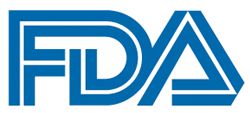Ivosidenib Granted FDA Approval for IDH1+ AML
Ivosidenib (Tibsovo) has been granted approval by the FDA for the treatment of adult patients with relapsed/refractory <em>IDH1</em>-mutant acute myeloid leukemia.

Ivosidenib (Tibsovo) has been granted approval by the FDA for the treatment of adult patients with relapsed/refractory IDH1-mutant acute myeloid leukemia (AML).
The approval is based on a single-arm study of 174 patients withIDH1-positive relapsed/refractory AML, in which the complete remission (CR) rate was 24.7% (n = 43; 95% CI, 18.5-31.8) and the CR with partial hematologic improvement (CRh) rate was 8% (n = 14; 95% CI, 4.5-13.1). The median duration of CR plus CRh was 8.2 months (range, 5.6-12). Among the CR/CRh population, the median time to best response was 2.0 months (range, 0.9-5.6).
“Tibsovo is a targeted therapy that fills an unmet need for patients with relapsed or refractory AML who have anIDH1mutation,” Richard Pazdur, MD, director of the FDA’s Oncology Center of Excellence and acting director of the Office of Hematology and Oncology Products in the FDA’s Center for Drug Evaluation and Research, said in a statement.
“The use of Tibsovo is associated with a complete remission in some patients and a reduction in the need for both red cell and platelet transfusions,” added Pazdur.
The median patient age in the pivotal trial was 67 years (range, 18-87) and patients had received a median of 2 prior therapies (range, 1-6). Thirty-three percent of patients had secondary AML and 63% were refractory to their previous therapy.IDH1mutations were identified/confirmed by the Abbott RealTime™ IDH1 assay.
Patients received oral ivosidenib at a starting dose of 500 mg daily. Treatment was administered until unacceptable toxicity, disease progression, or undergoing hematopoietic stem cell transplantation. The primary endpoint was the combined rate of CR plus CRh. According to a press release from Agios Pharmaceuticals, the manufacturer of ivosidenib, the study defined CRh as "<5% of blasts in the bone marrow, no evidence of disease, and partial recovery of peripheral blood counts (platelets >50,000/μl and ANC >500/μl)."
At baseline, 64 patients were independent of both red blood cell (RBC) and platelet transfusions. During any 56-day post-baseline period, 38 (59.4%) of these patients remained transfusion independent. Forty-one (37.3%) of the 110 patients who were dependent on RBC and/or platelet transfusions at baseline were transfusion independent during any 56-day post-baseline period. Twelve percent (n = 21) of the overall population received a stem cell transplant after treatment with ivosidenib.
The safety of ivosidenib was evaluated in 179 patients withIDH1-positive relapsed/refractory AML treated with the 500 mg dose. Patients were exposed to ivosidenib for a median duration of 3.9 months (range, 0.1-39.5)
All-grade adverse events (AEs) occurring in ≥20% of patients included fatigue, leukocytosis, arthralgia, diarrhea, dyspnea, edema, nausea, mucositis, electrocardiogram QT prolonged, rash, pyrexia, cough and constipation. The most common serious AEs occurring in at least 5% of patients included differentiation syndrome (10%), leukocytosis (10%) and electrocardiogram QT prolongation (7%).
Among the 179-patient safety population, 34 (19%) patients had differentiation syndrome. Consequently, the FDA label for ivosidenib include a boxed warning regarding differentiation syndrome, warning that the condition can be fatal if not treated.
In a statement on the approval, Hagop M. Kantarjian, MD, professor and chair of the Department of Leukemia at The University of Texas MD Anderson Cancer Center, said, “AML patients who relapse or are refractory to available therapies have few, if any, treatment options. The clinical study demonstrated that Tibsovo has the potential to deliver strong, durable responses as a single agent and can help patients achieve and maintain transfusion independence. IDH inhibitors represent a new class of noncytotoxic, targeted therapies for AML patients withIDH